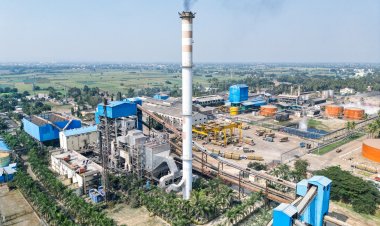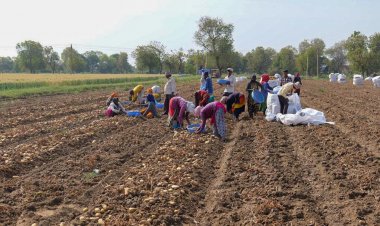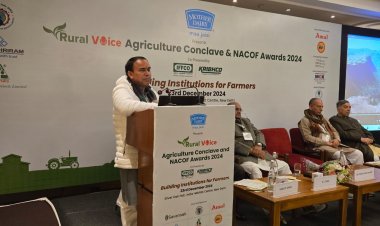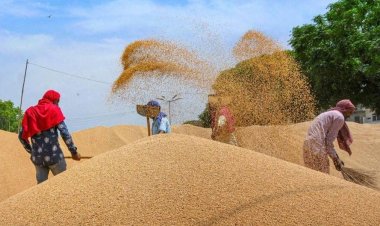GSP Crop Science to enter new markets in India, abroad
GSP is keen on expanding manufacturing capacity in SEZ zone Dahej in the next two years. It has also opened a company in Brazil under the name GSP Agroquimica do brasil.

GSP Crop Science, a leader in the agro-chemical industry, aims to expand its product portfolio and enter new markets in India and abroad by increasing its focus on research and development and develop new and innovative products that cater to the changing needs of farmers.
The company also plans to increase its manufacturing capabilities and invest in state-of-the-art technologies to ensure the production of high-quality products, says a company release, adding that GSP is committed to sustainable agriculture and plans to work towards creating a more sustainable and environmentally friendly agro-chemical industry. GSP is keen on expanding manufacturing capacity in SEZ zone Dahej in the next two years. It has also opened a company in Brazil under the name GSP Agroquimica do brasil.
The leading Indian agro-chemical company has been serving the agricultural industry since 1985. Its founder, Vrajmohan Shah, had a vision to provide affordable and effective crop protection solutions to farmers in India. Over the years, GSP has emerged as a prominent player in the Indian agro-chemical industry, and the company has grown significantly since its inception.
The company started with just one product, but over the years, it has grown to offer a wide range of products and services to its customers. Today, GSP is one of the leading agro-chemical companies in India, and it has a strong presence in both the domestic and international markets.
The company has a well-established distribution network, and its products are available in all major agricultural regions of India. Initially started as a trading company today we manufacture 19 technical in house and have a product portfolio that can rival any company in the industry.
At present, GSP Crop Chemicals has a wide range of products that cater to the different needs of farmers. The company's product portfolio includes insecticides, fungicides, herbicides, plant growth regulators, and micronutrients. GSP also provides technical support to farmers and offers training programs to help them optimise their crop yields. The company has a strong focus on research and development, and it regularly launches new products to cater to the changing needs of farmers.
GSP Crop Chemicals has a dedicated research and development team that works towards developing new and innovative products. The company's R&D team is focused on creating products that are environmentally friendly and safe for use.
GSP has recently launched a new product, "GSP PCT-410", which is a unique blend of plant growth regulators that enhances the overall plant growth and yield. The product has received a positive response from farmers, and it has helped increase their crop yields significantly. GSP Crop Chemicals regularly launches new products to cater to the changing needs of farmers. The company recently launched "GSP PCT-410," a unique blend of plant growth regulators that enhances overall plant growth and yield.
The product has been well received by farmers, and it has helped increase their crop yields significantly. GSP also offers a range of micronutrients that help improve soil health and increase crop yields. GSP Crop Chemicals recently received a patent for its new product, CTPR, which is a combination of two fungicides that are effective against a wide range of fungal diseases. The product has been well received by farmers, and it has helped control fungal diseases in crops significantly. CTPR is one of the most important products available to the farmers all around the world currently. GSP has a process patent which gives us the freedom to provide this product to the Indian farmers at a better price.
It goes without saying that farming in India is a challenging task, as farmers face several challenges such as unpredictable weather conditions, low crop yields, and high input costs.



 Join the RuralVoice whatsapp group
Join the RuralVoice whatsapp group







































